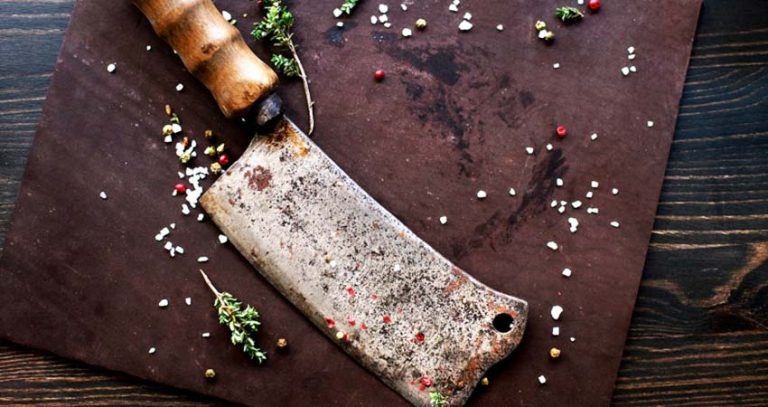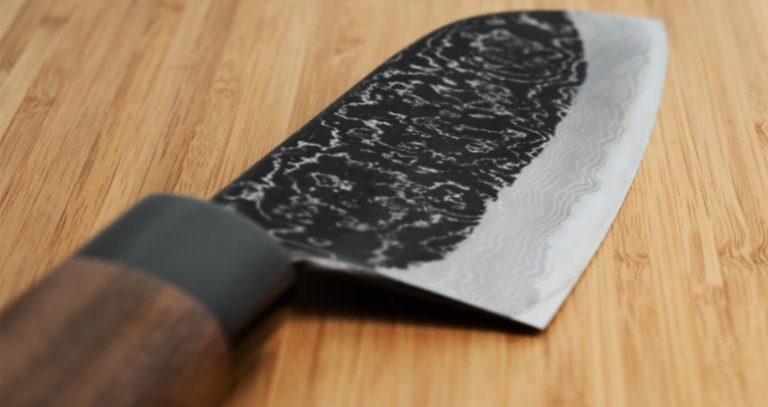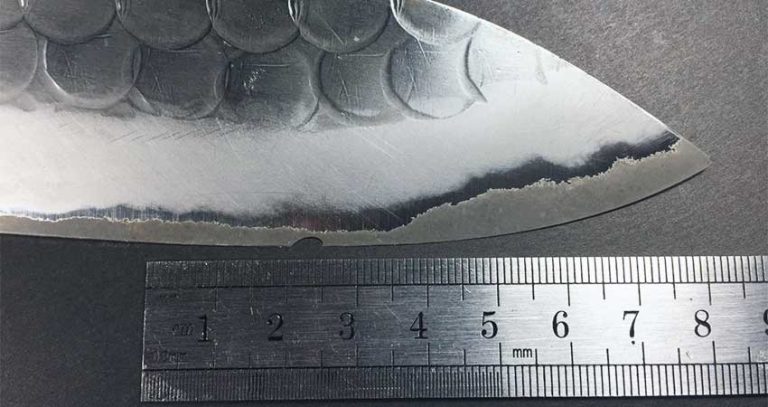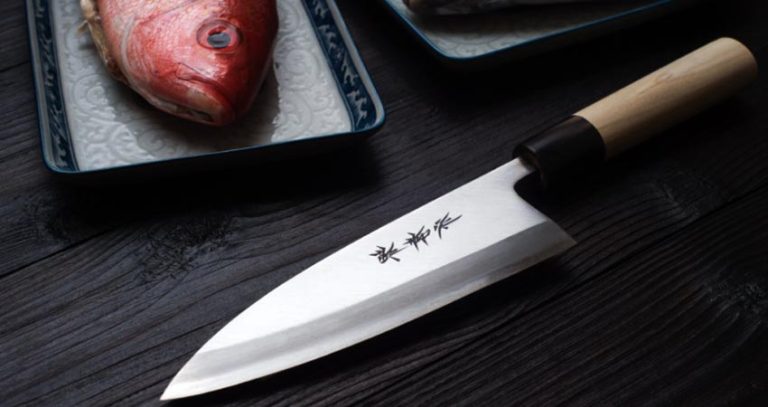Can I Use Hand Sanitizer On A Knife?
The question of whether or not you can use hand sanitizer on a knife does not seem to go away.
Since hand sanitizer has a high content of alcohol, it can disinfect standard tools such as knives. It can also help sanitize your cutting board, especially if you’ve applied it long before cleaning it.
A hand sanitizer that effectively cleans a knife should have more than 90% alcohol content.
With that kind of sanitizer, you can remove grease, stains, and oils from the blade. It gets even better if you want to clean a foldable pocket knife.
The alcohol-based sanitizer penetrates the crevices, ridding the knife of all forms of dirt.
Can I Use Hand Sanitizer On A Knife?
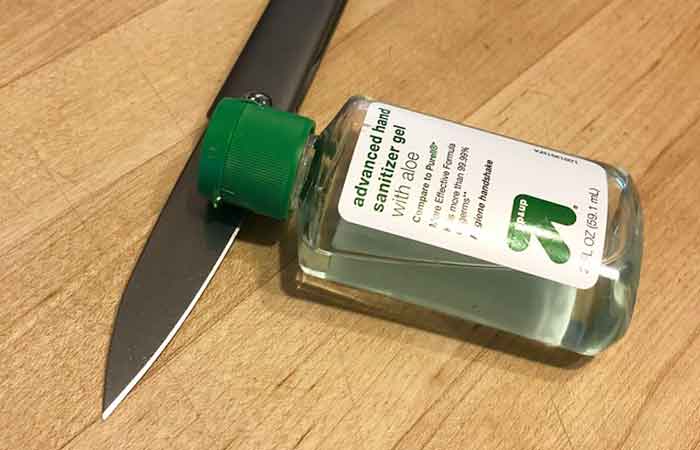
You may ask, “can I use hand sanitizer on a knife?” The simple answer is, “yes.” You can use hand sanitizer on a knife. However, the sanitizer should have 90 percent high-purity alcohol to disinfect the knife blade.
Use a damp cloth to rub the hand sanitizer on the knife. Simply rubbing with the sanitizer is all you need for a stainless-steel knife.
If your knife is rusted, rubbing alcohol on it might disinfect but not remove the rust. An alcohol-based sanitizer is suitable for eliminating grime, grease, and oil from the blade and handle of the knife.
You can wipe a knife with sanitizer soon after cleaning it with soap and water. Alcohol effectively removes stubborn smudges and stains that soap and water can’t remove.
Remember that a sanitizer may not always be the best way to disinfect a knife.
While it can rid the blade of grime, oil, and grease, it can damage a fine wood grain knife handle. Alcohol can react with the oil coating on the wood, changing the color of the wood grain.
When Should I Use Hand Sanitizer?
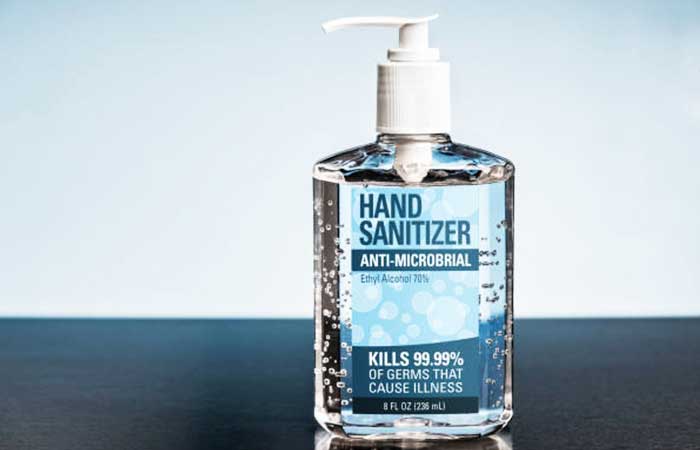
There are times when soap and water are not enough to clean a knife. They might get rid of bare dirt but not deep-seated oil, grease, and grime.
Besides, soap may fail to disinfect the knife effectively.
Use a lint-free cloth or cotton swab to wipe some hand sanitizer on a knife. With that, you can remove grease, ink, and solid residue.
Use hand sanitizer sparingly since its alcohol content tends to dry the plastic parts, making them grow brittle with time.
Where possible, you may have to disassemble the knife to clean it thoroughly. For some pocket knives, that will likely break the factory warranty.
If your blade is exposed to too much grease, it could be the only way to remove it.
How Will Hand Sanitizer Affect My Knife?
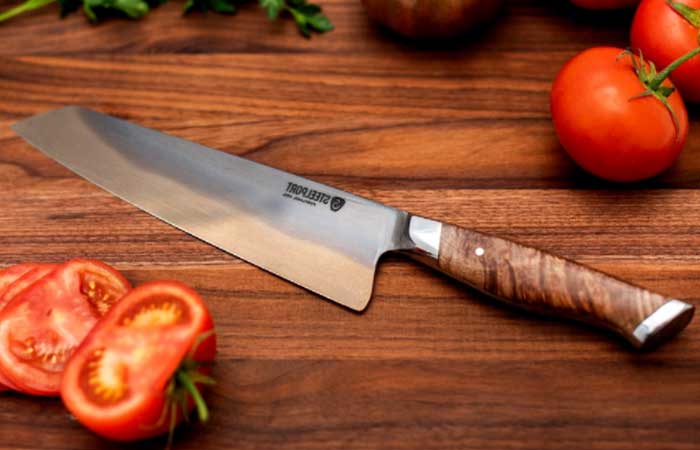
Every bottle of hand sanitizer contains over 90 percent alcohol, which affects the knife in many ways.
The sanitizer can surely rid your blade of stains, grease, and oil that could have accumulated onto the knife for several years. However, it can harm the knife in many ways.
Thanks to its properties as a powerful solvent, the alcohol in the sanitizer can leave your knife worse off.
For example, if you dip your carbon steel knife with some oil to prevent rusting, hand sanitizer can remove the grease. In the end, your knife can start rusting.
If you wash a knife with hand sanitizer, you may remove the lubricant inside the pivot mechanism.
That means that you must lubricate the blade after cleaning it. Sprinkle some lubricating oil onto the joint to ensure it can move again.
Can Hand Sanitizer Remove Rust from My Knife?
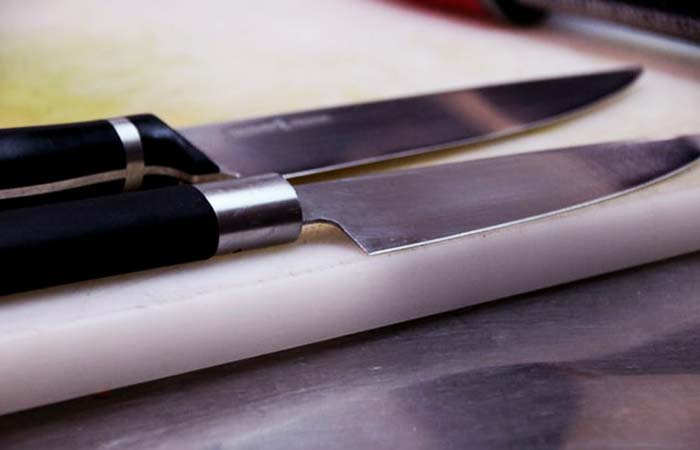
No, hand sanitizer cannot remove rust from your knife. Even though the alcohol in the sanitizer cannot dissolve rust, it can remove some forms of blade discoloration.
It perfectly removes oil or chemical-based discoloration from the blade of the knife.
When your knife is rusted, be sure to scrub the stain thoroughly. Getting rid of it ultimately ensures that it does not get soaked back into the metal, keeps eroding, and reduces its sharpness and durability.
Using a mild soap, you can wipe the surface of the knife blade. Besides, you can use another knife to scrape off the rust.
If you have a rough, coarse stone, you can use it to remove the rust. Ensure the blade is as rust-free as possible before applying some grease to it.
FAQs
Will Metal Rust in Alcohol?
No, metal does not rust in alcohol due to the absence of the conditions for corrosion.
Rusting happens when metal gets exposed to a combination of water and oxygen. Alcohol has no water content and won’t rust in alcohol.
Can You Use Hand Sanitizer on Metal?
Yes, you can use hand sanitizer on metal, including iron, stainless steel, platinum, silver, and titanium. Therefore, you can clean a knife with hand sanitizer.
Can You Use Hand Sanitizer as a Cleaner?
Yes. You can use hand sanitizer as a cleaner. It has a high alcohol content, which can help clean countertops, faucets, sinks, etc.
Alcohol evaporates as soon as you finish using it, making it suitable for use on computer keyboards.
Is a Sanitizer Food Safe?
Yes. A sanitizer is food-safe. You can, therefore, use it to clean surfaces that frequently come into contact with food.
However, depending on the composition, some sanitizers might not be food-safe.
When Should You Use Sanitizer?
Alcohol-based hand sanitizers might not effectively remove dirt. Therefore, it helps to clean a surface thoroughly with soap and water.
After that, you can apply hand sanitizer to the knife.
Conclusion
You can use hand sanitizer on a knife, especially to remove oil, grease, and other stains. If your knife is too dirty, you may have to clean it with soap and water first.
You can then apply hand sanitizer to the blade. The alcohol in the sanitizer kills germs, sterilizing your knife.
However, a hand sanitizer can remove lubrication from a pocket knife, stiffening the joints.
Moreover, alcohol dissolves the protective coating on wooden knife handles and dries plastic parts, reducing the knife’s longevity.
Therefore, you should use it sparingly.


